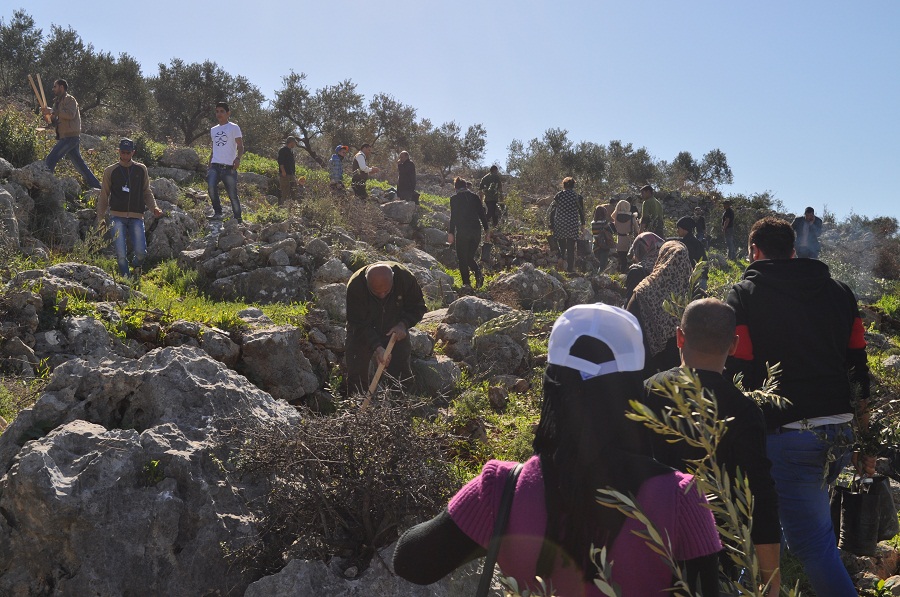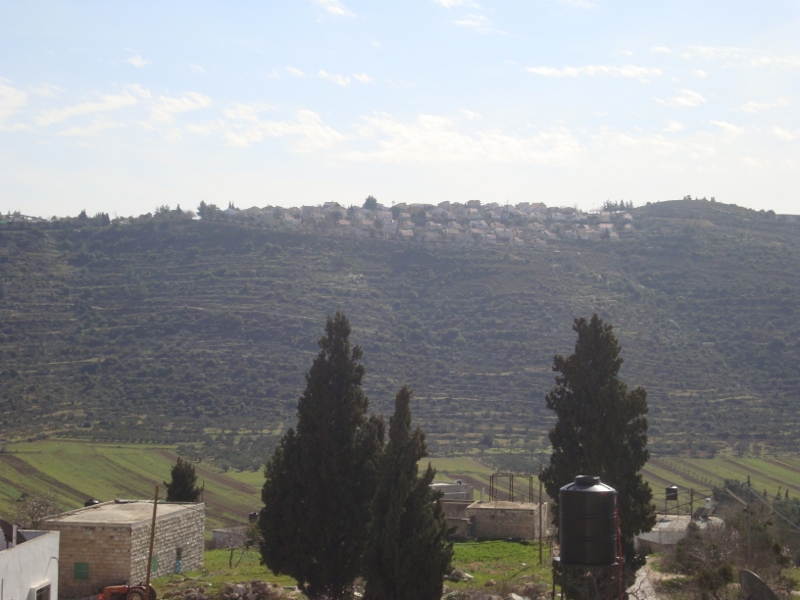Tag: Olive Trees
-

Israeli settlers cut 36 olive trees in the South Hebron Hills
22nd February 2015 | Operation Dove | South Hebron Hills, Occupied Palestine On the morning of February 20, Palestinians in the South Hebron Hills awoke to find that 36 olive trees had been cut or seriously damaged during the night, probably by Israeli settlers. The 25 year-old trees, owned by the Hushiy family from Yatta, were located near the village…
-

Olive tree planting in Kafr ad Dik
7th February 2015 | International Solidarity Movement, Nablus Team | Kafr ad Dik, Occupied Palestine On the morning of February 5, ISM volunteers travelled with around 50 Palestinian activists from the Salfit area to the village of Kafr ad Dik to take part in an olive tree planting action organised by the Joint Council of Salfit…
-

Village in Focus: As Sawiya
25th January 2015 | International Solidarity Movement, Nablus Team | As Sawiya, Occupied Palestine On January 24th, 2015, ISM activists visited As Sawiya, a Palestinian village located near Salfit. The village is home to around 3,500 people. Seven mountains surround the village; much of the land is occupied by three illegal Israeli settlements – Eli,…
